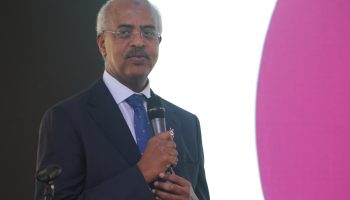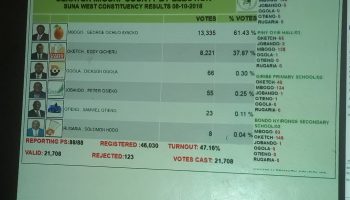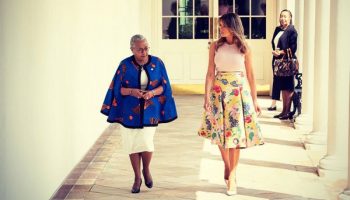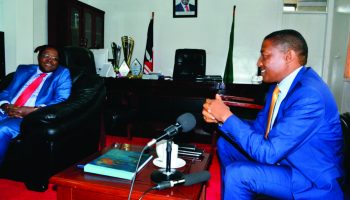- March 24, 2020
- Posted by: p mulee
- Category:
By Reporter
President Uhuru Kenyatta’s administration is under pressure to roll out economic interventions to salvage the economy and cushion Kenyans against the effects of the coronavirus.
Economists, the civil society and professional bodies want the government to come up with an economic stimulus package to support the private sector to remain afloat and secure vulnerable jobs.
Interventions from a fiscal perspective would include reducing the taxes paid by companies and individuals to respectively lower the cost of operations and stimulate consumption.
National Assembly Budget Committee chairman Kimani Ichungw’a told the Star that the government must put more money in the pockets of Kenyans.
According to the Kikuyu MP, the government should engage international lenders to restructure loans repayment.
“The rescheduling of public debts ought to be negotiated in a way that more of our dwindling revenues will now go towards supporting the economy and offering services other than repaying loans,” he said.
Official Central Bank of Kenya data shows that the country’s debt is Sh6 trillion.
However, Uhuru was cautious yesterday. “In a few days’ time, we shall also be having a further session with the private sector where we shall be announcing a raft of measures the government will take to support our businesses and our people particularly in this difficult time.”
He was addressing the nation on television from State House, Nairobi.
Yesterday, the CBK lowered the base lending rate from 8.25 per cent to 7.25 per cent to offset the adverse effects of the coronavirus spread. Kenyans will now access cheaper credit.
“While the extent of the adverse effects of the pandemic on the Kenyan economy is still evolving, it is already evident that the impact may be severe,” Governor Patrick Njoroge said in a statement.
Kitutu Chache South MP Richard Onyonka asked the government to initiate a universal income for Kenyans likely to lose jobs even if it means borrowing more from the international lenders.
“Such a social system would cushion Kenyans who would be pushed to the brink of unemployment,” Onyonka said.
The MP, who is also a member of the Budget and Appropriations Committee, said Uhuru must borrow international best practices in dealing with the economy.
“Parliament would be more than available if summoned to put in place necessary legal framework where necessary to enable the government to get money to cushion Kenyans,” he added.
However, there are concerns that the options available for the President to mitigate the effects of Covid-19 on the economy are limited compared to strong economies like America, China and the UK.
There may also be little much that the government can do to cushion businesses and consumers from losses arising from the impact of the coronavirus.
Financial analyst Aly Khan Satchu told the Star the burning question right now is how such a stimulus fund would be financed.
“The Eurobond market is shuttered, our bond yields have been hammered and are in double digits which are in ‘distressed’ levels,” he said. “If we print money, the shilling will nosedive immediately and destroy our debt to GDP ratios.”
During last week’s bond auction, the National Treasury received slightly more than half the targeted amount in reopened 20- and 25-year bonds.
Financial analyst Mihr Thakar echoed Satchu’s sentiments, adding that the government does not have the financial muscle to provide a conventional stimulus package to the economy.
“The only way they can introduce any stimulus measures is by increasing spending through new borrowing,” he said.
This, he said, may, however, prove difficult, as the government’s capacity to do so will decline with expected revenue shortfalls as different sectors of the economy suffer as a result of the coronavirus spread.
While economists agree that cutting Pay As You Earn (PAYE) would put more money in consumers’ pockets, it is not clear if the President would likely plunge in the unchartered waters.
There are also proposals that the government might have to either forego or defer payable taxes that are falling due, to enable businesses to take care of their employees rather than lay them off.
Businesses continuously pay duties, including Value Added Tax, whose computation is declared every month.
As part of the proposals, employers could also be allowed to defer the surrender of employees’ income taxes, which are deducted from their monthly salaries, to enable them to navigate the rough economic terrain.
VAT is payable by the 20th of every month, while employers are required to surrender the deducted employees’ income taxes by the 9th of the subsequent month.
Ichungw’a said the government must at the same time devise a rescue plan for the country’s key sectors to make sure they remain afloat and avert layoffs in the wake of the Covid-19 impact.
“The government must have a rescue package to cover the private sector in areas like tourism and aviation that would be hard hit by the pandemic,” he said.
According to Ichungw’a, the measures would include tax reliefs and a protection fund, that would enable the private sector to remain vibrant to avert job losses.
Yesterday, the Law Society of Kenya asked President Kenyatta to cushion employees from the economic impact of Covid-19.
In a 13-point letter to Uhuru, its outgoing president Allen Gichuhi said as a result of the pandemic, it is evident that individuals who fall within the lower bands are going to be hit the hardest.
“We propose a temporary waiver on PAYE on low-income employees earning Sh23,885 and below per month until Covid-19 is brought under control,” Gichuhi said.
As more employers send staff to work from home to help minimise the virus’ spread, a number of those who had to report to work yesterday were forced to pay more for bus fare.
Last Friday, Health CS Mutahi Kagwe directed 14-seater matatus to carry a maximum of eight passengers, 25-seaters 15, buses with a sitting capacity of 30 and above to have 60 per cent sitting capacity.
This saw matatu owners resort to doubling fares, to offset the high cost of fuel.
Energy and Petroleum Regulatory Authority (EPRA) director-general Robert Oimeke told the Star, there had been no government directive to offer some sort of relief in terms of tax cuts on fuel products.
“Such a tax break has to be passed through the Finance Bill through an amendment to the law,” he said.
He, however, noted that given the 50 per cent drop in global crude prices to Sh30 per barrel it was likely that there will be a significant drop in fuel pump prices at the next monthly review.
This will likely provide relief to motorists mid-April given nearly half of what Kenyans pay at the pump goes to the government as taxes and levies.
“The recent reports of matatu operators hiking prices will be mitigated as cheaper oil imports hit our shores,” Thakar said.
Petroleum Institute of East Africa general manager Wanjiku Manyara told the Star that the government has the power to intervene to protect both the investor and the consumer.
“This may include, directing the transport sector to retain the fares charged before the directive to comply with the social distance order with an alternative incentive to recoup or to reduce the 40 per cent tax per litre of fuel,” she said.
Wanjiku added that while the reduction in global crude prices was welcome, gains that could be made from the reduced global crude oil prices could be to some extent be eroded by a weak shilling.
The Kenya Association of Manufacturers said it was working with members to ensure fair pricing and the rule of law with regards to existing contractual obligations prevail.
“We have seen manufacturers actually go a step further to reduce the price of commodities. Some of our members, for example, Pwani Oil, have actually reduced the prices of these essentials in light of the pandemic,” KAM chief executive Phyllis Wakiaga told the Star.
She said such acts were being encouraged to help the society sail through the coronavirus pandemic with minimal negative economic impact.
According to KAM, the government can cushion all sectors of the economy through developmental and bailout measures to ensure the sustainability of enterprises.
“Some of these measures include reducing corporate tax and VAT, fast-tracking VAT refunds and paying of verified pending bills amongst others,” Wakiaga said.
Thakar, however, said, at such a crucial time, tax cuts would be untenable for the economy.
“The government may opt for syndicated loans from commercial banks and use the proceeds to increase development spending and create temporary jobs. World Bank, IMF and other developed countries will also be of use,” he said.
According to Satchu the best solution right now would be direct phone payments to every citizen.
“That’s going to be the fairest and best approach of whatever funds we can cobble together,” he said.

















Nice response in return of this difficulty with solid arguments and explaining everything about that.
It’s appropriate time to make some plans for the future and it’s time to be happy.
I have read this post and if I could I wish to suggest you some interesting things or advice.
Maybe you can write next articles referring to this article.
I want to read more things about it!
Wow, marvelous blog layout! How long have you been blogging for?
you make blogging look easy. The overall look of your web site
is fantastic, as well as the content! adreamoftrains web hosting company
Can I just say what a comfort to find somebody who actually understands what
they are discussing over the internet. You certainly understand how to bring an issue to light and make it important.
More and more people ought to look at this and understand this
side of your story. I can’t believe you aren’t more popular since you
surely possess the gift.
Do you mind if I quote a few of your articles as long as I provide credit
and sources back to your weblog? My blog site is in the exact same
area of interest as yours and my visitors would genuinely benefit from some of the information you present here.
Please let me know if this alright with you. Many thanks!
I like the valuable info you supply on your articles.
I’ll bookmark your weblog and test once more here regularly.
I’m fairly sure I’ll be told many new stuff proper right here!
Good luck for the following!
Great site you’ve got here.. It’s difficult to find excellent writing
like yours nowadays. I seriously appreciate individuals like you!
Take care!! yynxznuh cheap flights
Why visitors still make use of to read news papers when in this technological globe everything
is accessible on web? cheap flights 32hvAj4
Very nice post. I simply stumbled upon your weblog and wanted to mention that I have truly enjoyed browsing your weblog posts.
In any case I will be subscribing for your rss feed and I
hope you write again very soon! 2CSYEon cheap flights
Way cool! Some very valid points! I appreciate you writing this post and the rest of the website
is very good.
That is a great tip especially to those new
to the blogosphere. Brief but very precise information… Thanks for sharing this one.
A must read article!
It’s remarkable to visit this website and reading the views of all colleagues concerning this paragraph, while I am also zealous of getting knowledge.